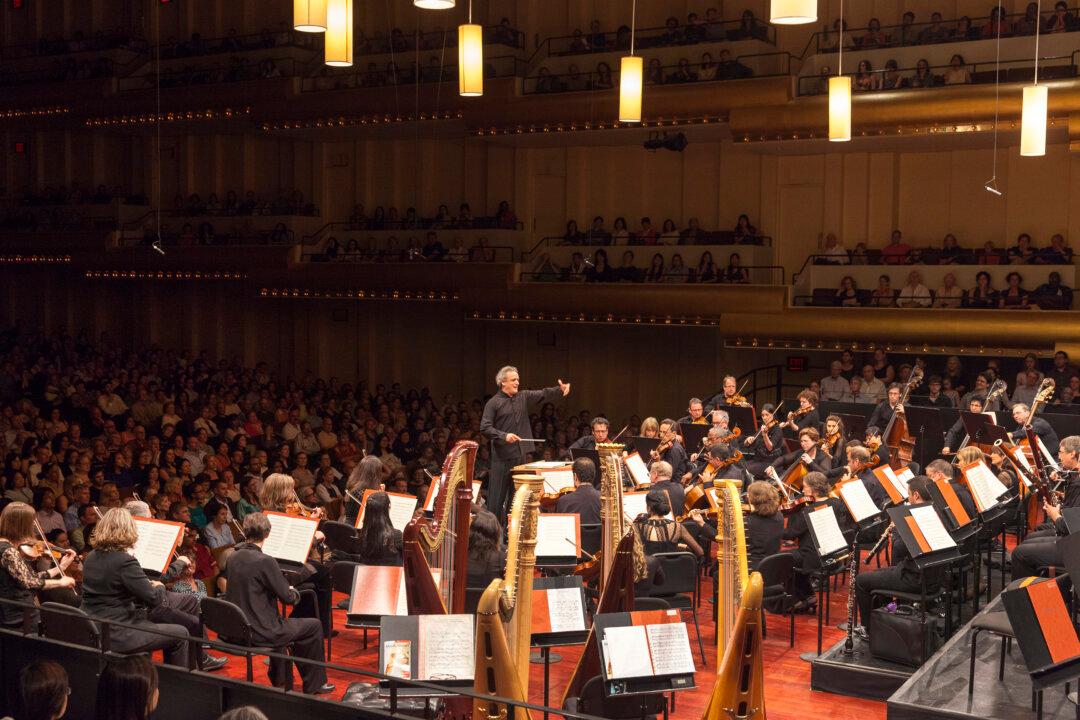The Mostly Mozart Festival presented a rousing concert of the composer’s two choral masterpieces: the Mass in C minor, K. 427 (1782-1783) and the Requiem, K. 626 (1791).
Louis Langrée conducted the Mostly Mozart Festival Orchestra with the Concert Chorale of New York under the direction of James Bagwell. The distinguished soloists, all Americans making their debut with the festival, were soprano Joélle Harvey, mezzo-soprano Cecelia Hall, tenor Alek Shrader, and bass-baritone Christian Van Horn.
The magisterial Mass reflected the influence of Bach and Handel.






